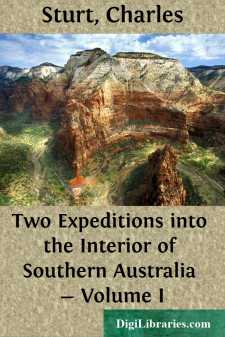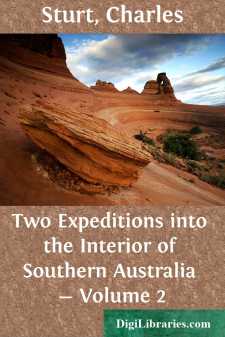Categories
- Antiques & Collectibles 13
- Architecture 36
- Art 48
- Bibles 22
- Biography & Autobiography 813
- Body, Mind & Spirit 141
- Business & Economics 28
- Children's Books 12
- Children's Fiction 9
- Computers 4
- Cooking 94
- Crafts & Hobbies 4
- Drama 346
- Education 46
- Family & Relationships 57
- Fiction 11826
- Games 19
- Gardening 17
- Health & Fitness 34
- History 1377
- House & Home 1
- Humor 147
- Juvenile Fiction 1873
- Juvenile Nonfiction 202
- Language Arts & Disciplines 88
- Law 16
- Literary Collections 686
- Literary Criticism 179
- Mathematics 13
- Medical 41
- Music 40
- Nature 179
- Non-Classifiable 1768
- Performing Arts 7
- Periodicals 1453
- Philosophy 64
- Photography 2
- Poetry 896
- Political Science 203
- Psychology 42
- Reference 154
- Religion 513
- Science 126
- Self-Help 83
- Social Science 81
- Sports & Recreation 34
- Study Aids 3
- Technology & Engineering 59
- Transportation 23
- Travel 463
- True Crime 29
Two Expeditions into the Interior of Southern Australia - Volume I
by: Charles Sturt
Categories:
Description:
Excerpt
The year 1826 was remarkable for the commencement of one of those fearful droughts to which we have reason to believe the climate of New South Wales is periodically subject. It continued during the two following years with unabated severity. The surface of the earth became so parched up that minor vegetation ceased upon it. Culinary herbs were raised with difficulty, and crops failed even in the most favourable situations. Settlers drove their flocks and herds to distant tracts for pasture and water, neither remaining for them in the located districts. The interior suffered equally with the coast, and men, at length, began to despond under so alarming a visitation. It almost appeared as if the Australian sky were never again to be traversed by a cloud.
OBJECTS OF THE EXPEDITION.
But, however severe for the colony the seasons had proved, or were likely to prove, it was borne in mind at this critical moment, that the wet and swampy state of the interior had alone prevented Mr. Oxley from penetrating further into it, in 1818. Each successive report from Wellington Valley, the most distant settlement to the N. W., confirmed the news of the unusually dry state of the lowlands, and of the exhausted appearance of the streams falling into them. It was, consequently, hoped that an expedition, pursuing the line of the Macquarie, would have a greater chance of success than the late Surveyor General had; and that the difficulties he had to contend against would be found to be greatly diminished, if not altogether removed. The immediate fitting out of an expedition was therefore decided upon, for the express purpose of ascertaining the nature and extent of that basin into which the Macquarie was supposed to fall, and whether any connection existed between it and the streams falling westerly. As I had early taken a great interest in the geography of New South Wales, the Governor was pleased to appoint me to the command of this expedition.
JOURNEY FROM SYDNEY TO EMU PLAINS.
In the month of September, 1828, I received his Excellency's commands to prepare for my journey; and by the commencement of November, had organised my party, and completed the necessary arrangements. On the 9th of that month, I waited on the Governor, at Parramatta, to receive his definitive instructions. As the establishments at Sydney had been unable to supply me with the necessary number of horses and oxen, instructions had been forwarded to Mr. Maxwell, the superintendent of Wellington Valley, to train a certain number for my use; and I was now directed to push for that settlement without loss of time. I returned to Sydney in the afternoon of the 9th, and on the 10th took leave of my brother officers, to commence a journey of very dubious issue; and, in company with my friend, Staff-surgeon M'Leod, who had obtained permission to accompany me to the limits of the colony, followed my men along the great western road. We moved leisurely over the level country, between the coast and the Nepean River, and availed ourselves of the kind hospitality of those of our friends whose property lay along that line of road, to secure more comfortable places of rest than the inns would have afforded.
We reached Sheane, the residence of Dr. Harris, on the 11th, and were received by him with the characteristic kindness with which friends or strangers are ever welcomed by that gentleman, He had accompanied Mr. Oxley as a volunteer in 1818, and his name was then given to the mount which formed the extreme point to which the main body of the first expedition down the banks of the Macquarie penetrated, in a westerly direction.
The general appearance of the property of Dr. Harris, showed how much perseverance and labour had effected towards its improvement....





